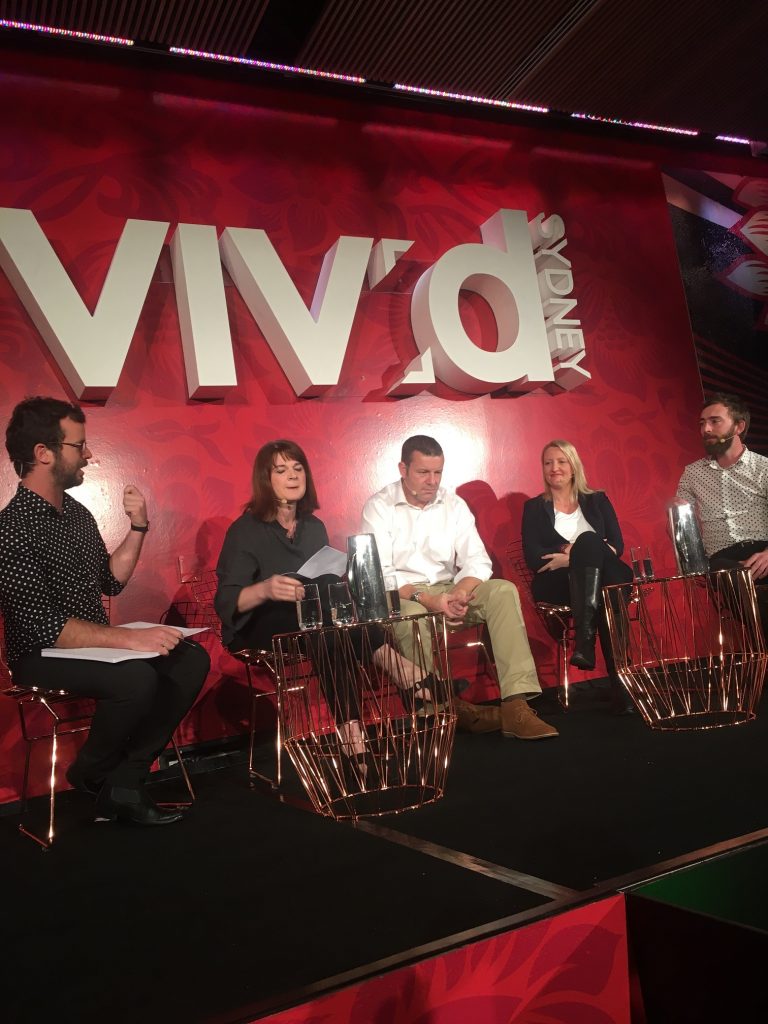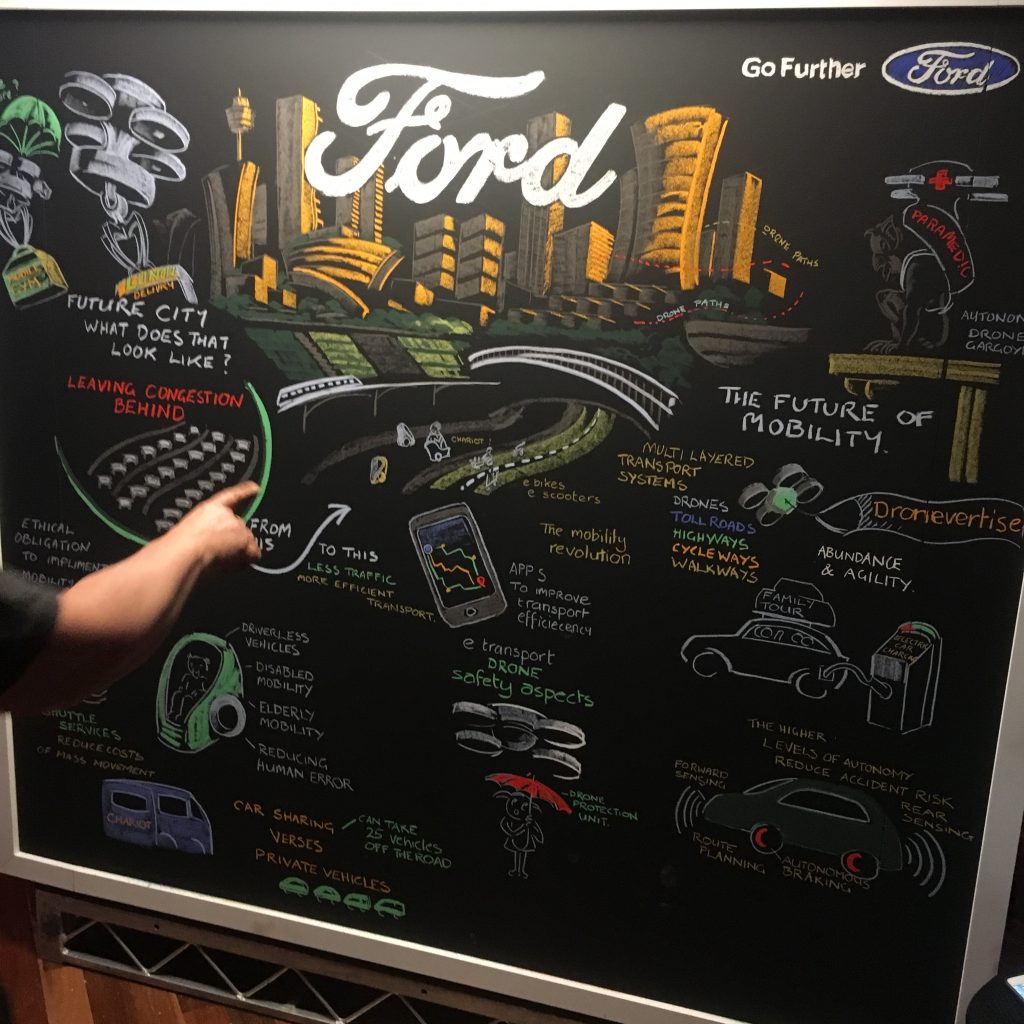The Dads Stuff team was lucky enough to be invited to a Vivid Ideas session which looked into the future of mobility. On the menu for discussion… drones, driverless cars, Blade Runner and how business and cities are planning for the next technological revolution. It was a fantastic insight into how Ford is planning for the future, and how soon the next BIG step could happen. Set against the backdrop of Sydney’s Vivid Festival, this was an evening the Dads Stuff team certainly enjoyed. Carry on reading for Ford’s take on how it needs to change as a company to keep up.

Australia is on the cusp of a mobility revolution, rivalled only by the introduction of the automobile more than 110 years ago. The mobility revolution will bring forward a focus on alternative, sustainable mobility options such as multi-modal transportation and ride-sharing solutions. For many urban areas in Australia this will mean a shift away from traditional car ownership towards a different way of moving.
Future mobility solutions will provide Australians with more choice, increase safety on roads, increase accessibility, and reduce congestion and pollution through better use of existing and new vehicles, as well as more efficient use of current and new infrastructure.
“At Ford we believe that mobility – and all the advantages and benefits that come with it – are a human right,’ said Graeme Whickman, president and CEO, Ford Australia and New Zealand. “The mobility solutions that have served us for the last 100 years, won’t serve us for the next. We need to invest in solutions that will have a real impact on making the lives of Australians better.”
Industry innovators, inventors and futurists will comprise expert panels to be held at Vivid Ideas Exchange, part of Vivid Sydney, to discuss the mobility and business challenges of tomorrow and the need for solutions that will change the way we move. For the first time in 2017, Ford is a partner for Vivid Sydney, the world’s largest festival of light, music and ideas. The festival runs to 17 June, 2017.

Australia’s population is expected to grow from roughly 23.8 million to approx. 30.5 million by 2031. The majority of that growth will come from major metropolitan areas.1 Mobility is a large issue for Australians and without change, the cost of delays and congestion are expected to continue to climb.
According to a recent survey of more than 1,000 Australians, half (50%) believe that improved public transit/access to public transit will have the biggest impact on improving the quality of transportation/mobility for Australians, while 35% say that road infrastructure upgrades will have the greatest impact.
“Ford’s vision of the City of Tomorrow is not just made up of autonomous, electrified and connected vehicles, but rather, is a modern day collaboration with cities to work together providing solutions to complement and improve transport ecosystems including managing flow, multi-modal transport, etc.,” said Whickman.
New transportation solutions will enable people who can’t drive themselves to be mobile – improving quality of life, access to services and engagement in society for many Australians. An autonomous future will increase the motorization participation rate for those Australians currently not able to drive, for example, people with vision impairment. Vision Australia estimates there are approximately 357,000 people in Australia who are blind or have low vision, and it projects that number will grow to 564,000 by 2030.
Globally, Ford is experimenting and investing in a range of mobility solutions that can change the way people move. Ford believes that new mobility solutions, including alternate methods of transport, will help change the way the world moves. Design, innovation and technology are at the core of Ford’s future.

Chariot
In 2016, Ford acquired Chariot, a San Francisco-based crowd-sourced shuttle service, which operates nearly 100 Ford Transit shuttles along 28 routes throughout San Francisco Bay Area. Chariot’s routes are crowd-sourced based on rider demand and in the future they will operate dynamically – using data algorithms to map efficient routes to best serve the real-time mobility needs of communities around the world.
Argo AI
Ford is investing $1 billion during the next five years in Argo AI, combining Ford’s autonomous vehicle development expertise with Argo AI’s robotics experience and startup speed on artificial intelligence software – all to further advance autonomous vehicles.
The Last Mile E-Scooter Concept
In bustling cities like Melbourne and Shanghai, and all over the world, the car journey is only one part of getting to work or to family. Often congestion and a lack of affordable parking
